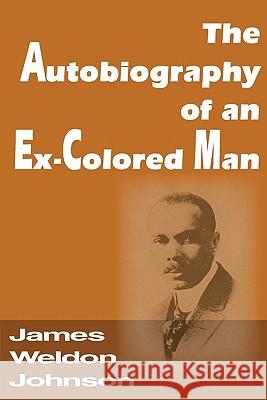The Autobiography of an Ex-Colored Man » książka
The Autobiography of an Ex-Colored Man
ISBN-13: 9781612030388 / Angielski / Miękka / 2011 / 122 str.
The Autobiography of an Ex-Colored Man
ISBN-13: 9781612030388 / Angielski / Miękka / 2011 / 122 str.
(netto: 47,15 VAT: 5%)
Najniższa cena z 30 dni: 49,23
ok. 16-18 dni roboczych.
Darmowa dostawa!
The Autobiography of an Ex-Coloured Man explores the intricacies of racial identity through the eventful life of its mixed-race narrator. James Weldon Johnson tells his story where his mulatto mother, aided by monthly checks from his white father, is able to provide a secure and cultured environment. Learning of his black heritage by accident he experiences the first of several identity shifts that eventually finds him opting for membership in white society. Johnson's theme of moral cowardice sets his tragic story of color lines at the turn of the century--from a black college in Jacksonville to an elite New York nightclub, the rural South to the white suburbs of the Northeast. The Autobiography of an Ex-Coloured Man is a powerful, unsentimental examination of race in America. "This vivid and startlingly new picture of conditions brought about by the race question in the United States makes no special plea for the Negro, but shows in a dispassionate, though sympathetic, manner conditions as they actually exist between the whites and blacks to-day."
The Autobiography of an Ex-Coloured Man explores the intricacies of racial identity through the eventful life of its mixed-race narrator. James Weldon Johnson tells his story where his mulatto mother, aided by monthly checks from his white father, is able to provide a secure and cultured environment. Learning of his black heritage by accident he experiences the first of several identity shifts that eventually finds him opting for membership in white society. Johnsons theme of moral cowardice sets his tragic story of color lines at the turn of the century--from a black college in Jacksonville to an elite New York nightclub, the rural South to the white suburbs of the Northeast. The Autobiography of an Ex-Coloured Man is a powerful, unsentimental examination of race in America."This vivid and startlingly new picture of conditions brought about by the race question in the United States makes no special plea for the Negro, but shows in a dispassionate, though sympathetic, manner conditions as they actually exist between the whites and blacks to-day."











